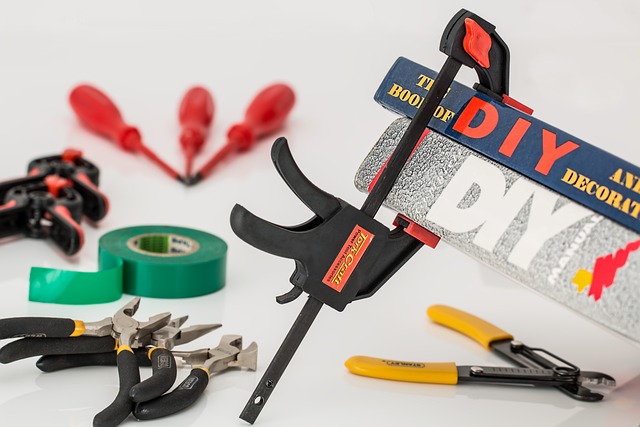Homeowners often face challenges with home improvement projects due to planning errors like inadequate preparation, hasty decisions, and DIY mistakes. Common issues include budget overruns, legal troubles from skipping permits, inaccurate measurements, and unsafe/unqualified contractors. Neglecting long-term energy efficiency goals can also lead to high bills and reduced sustainability. To avoid these problems, prioritize thorough research, professional advice, strict adherence to permit requirements, and meticulous planning for successful DIY projects.
Many homeowners overlook energy efficiency when upgrading their homes, making costly mistakes that impact both performance and sustainability. This article explores the prevalent issues plaguing home improvement projects, focusing on how DIY enthusiasts and professionals alike often fall into traps that lead to inefficient results. From planning blunders and measurement miscalculations to crucial steps like permits and hiring licensed contractors, we delve into common oversights that can be mitigated for better long-term outcomes.
Understanding Common Home Improvement Mistakes
Many homeowners make common mistakes when it comes to home improvement projects, often overlooking crucial aspects that can lead to significant issues down the line. One of the biggest blunders is failing to plan adequately; hasty decisions and DIY renovation errors can result in costly rework or even structural damage. Budget overruns are a frequent pitfall, especially when dealing with unexpected expenses or changing project scopes. Skipping necessary permits for construction can cause legal troubles and delays.
Another oversight is not realizing the importance of accurate measurements, which is critical for successful DIY projects. Hiring unlicensed contractors without proper research can lead to subpar workmanship and potential safety hazards. Additionally, some homeowners neglect to consider long-term energy efficiency, missing opportunities to reduce utility costs and contribute to a greener home environment. These common renovation oversights can be avoided through meticulous planning, seeking professional advice when needed, and prioritizing detailed measurements and permit compliance.
– Overview of frequent errors in DIY and professional renovations
In both DIY and professional renovations, several frequent errors often go unnoticed until it’s too late. One of the most common home improvement mistakes is skimping on permits, which can lead to significant legal issues and costly delays. Many homeowners also fall into the trap of underestimated project costs, resulting in budget overruns that can severely impact their financial plans. Additionally, skipping crucial steps like obtaining necessary permits or hiring unlicensed contractors can compromise the structural integrity of the home and void warranties.
Another set of common renovation oversights involves measurement mistakes, particularly in DIY projects. Inaccurate measurements can lead to poorly fitted fixtures and finishes, requiring costly rework. Furthermore, ignoring local building codes and regulations can result in hidden pitfalls that could have been avoided with proper planning. Homeowners should always prioritize thorough research and professional advice to navigate these remodeling pitfalls successfully.
– Impact on project outcomes and long-term energy efficiency
Overlooking energy efficiency during home upgrades can lead to significant issues down the line. One of the most notable impacts is on project outcomes; what seems like a quick fix or cost-saver at first might result in poor performance and higher energy bills over time. For instance, skipping essential insulation in walls or windows may initially seem appealing due to installation costs, but it will inevitably lead to a less energy-efficient home, making future heating and cooling efforts less effective and more expensive.
These mistakes can also contribute to long-term energy wastage and environmental impact. Common oversights like hiring unlicensed contractors who lack knowledge of modern energy-saving methods or making DIY measurement errors in fitments can compromise the overall efficiency gains intended through renovation. Moreover, budget overruns often arise from these mistakes, as unexpected costs for retrofitting energy-efficient solutions after initial planning errors can strain financial resources. Always prioritize thorough research and professional advice to avoid such pitfalls during home improvement projects.
DIY Renovation Errors to Avoid
When taking on a DIY home renovation project, it’s easy to get carried away with exciting new ideas and forget about the potential pitfalls that come with any construction work. Overlooking energy efficiency measures is one of the most common mistakes homeowners make during renovations. Skipping essential steps like proper insulation, efficient window installations, or updating outdated heating and cooling systems can lead to significant budget overruns in the long run. In fact, a study by the U.S. Department of Energy found that poor energy efficiency choices in home upgrades can result in up to 30% more energy consumption, translating to higher utility bills for years to come.
Another set of DIY renovation errors to avoid involves planning and legal aspects. Always remember to obtain necessary permits before starting any major work, as failure to do so can lead to hefty fines or even the possibility of having your project halted. Additionally, ensure that all contractors you hire are licensed and insured to protect yourself from potential liability issues. Measurement mistakes, especially in flooring or countertop installations, can also cause delays and budget problems, so take your time and double-check your calculations before ordering materials.
Overlooking energy efficiency in home upgrades is one of the most prevalent and costly mistakes. In an era where sustainable living is becoming increasingly important, understanding and avoiding common renovation pitfalls is crucial. By prioritizing energy-saving measures like proper insulation, efficient appliances, and smart thermostats, homeowners can not only reduce utility bills but also contribute to a greener planet. Remember that thoughtful planning, including seeking professional advice when needed, can prevent budget overruns and ensure your home improvement projects deliver long-lasting benefits.
